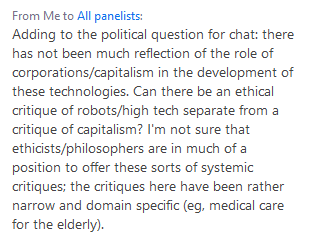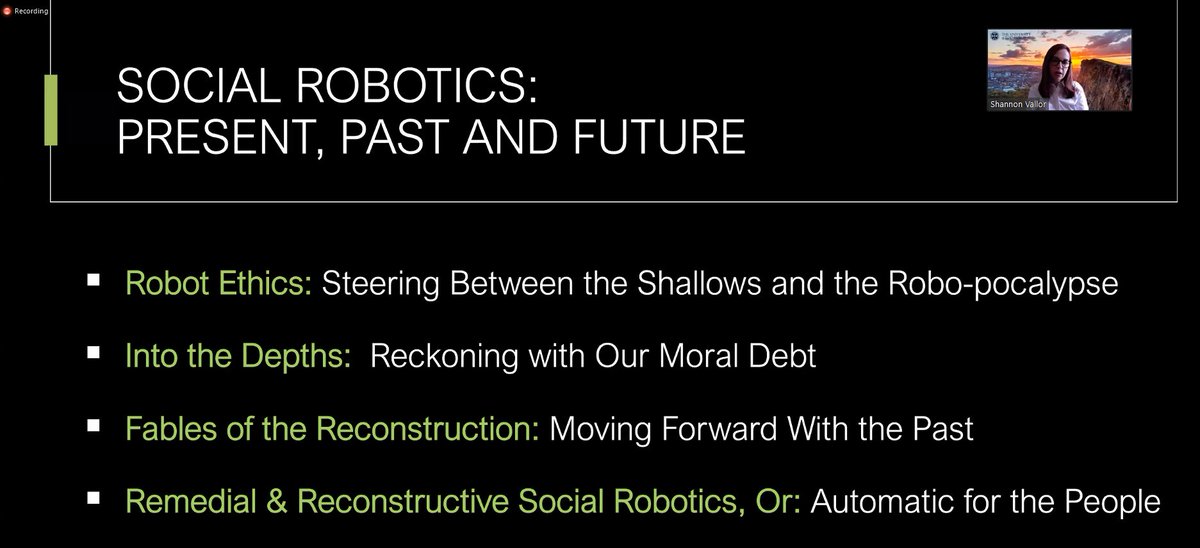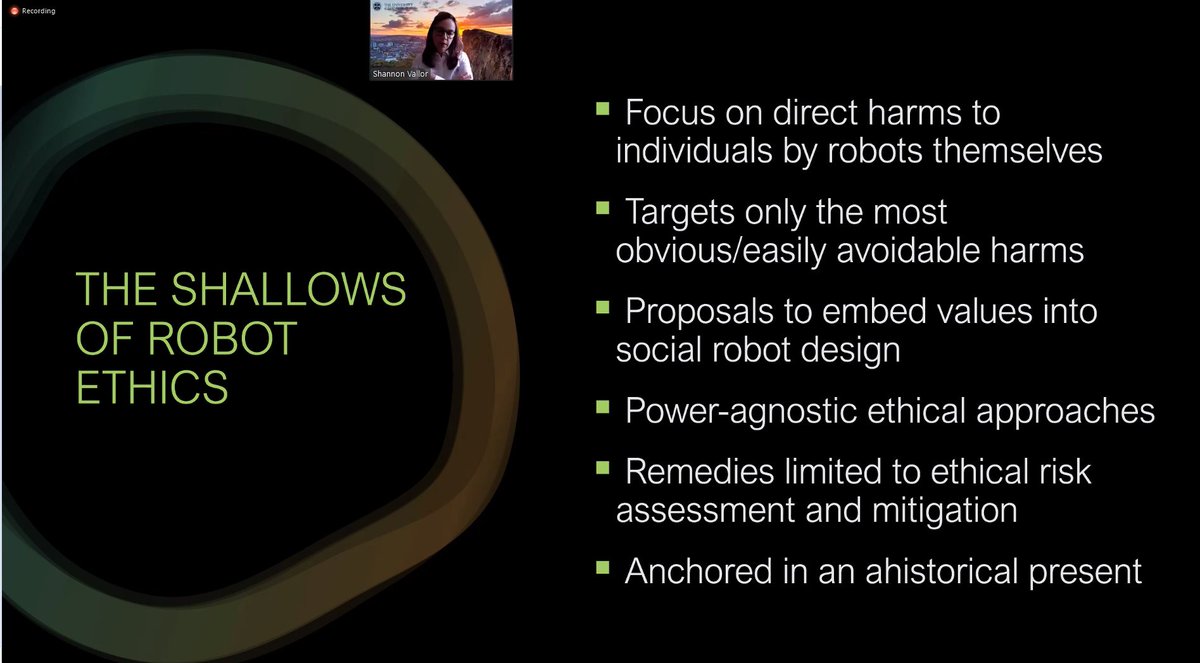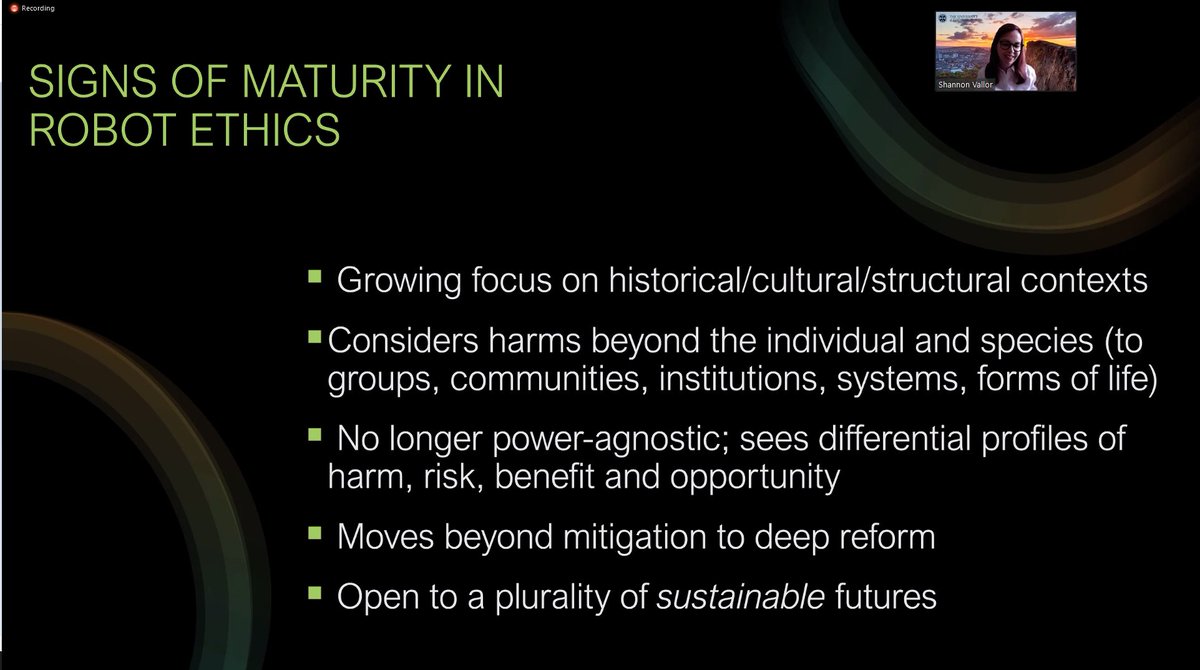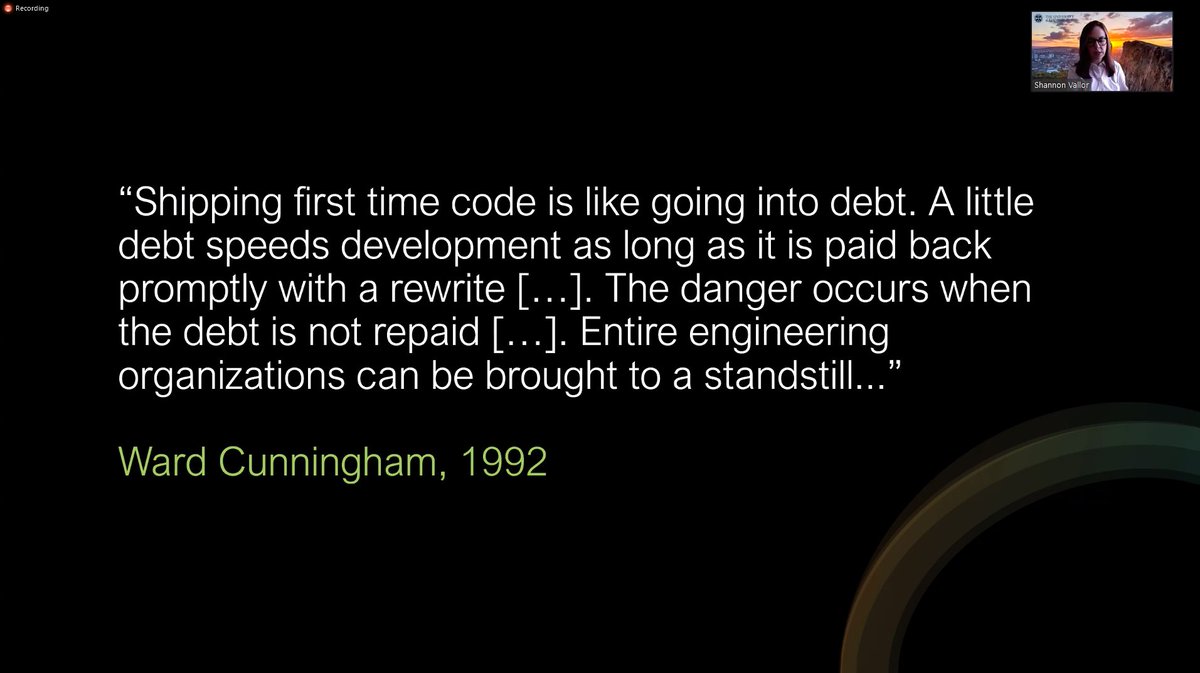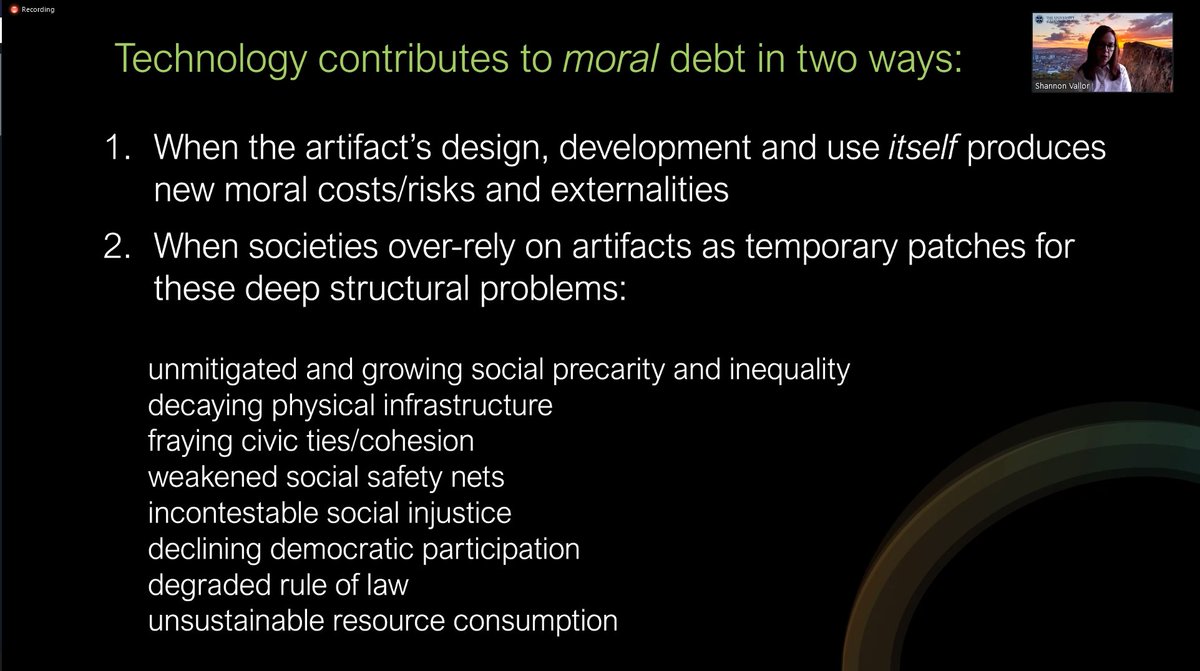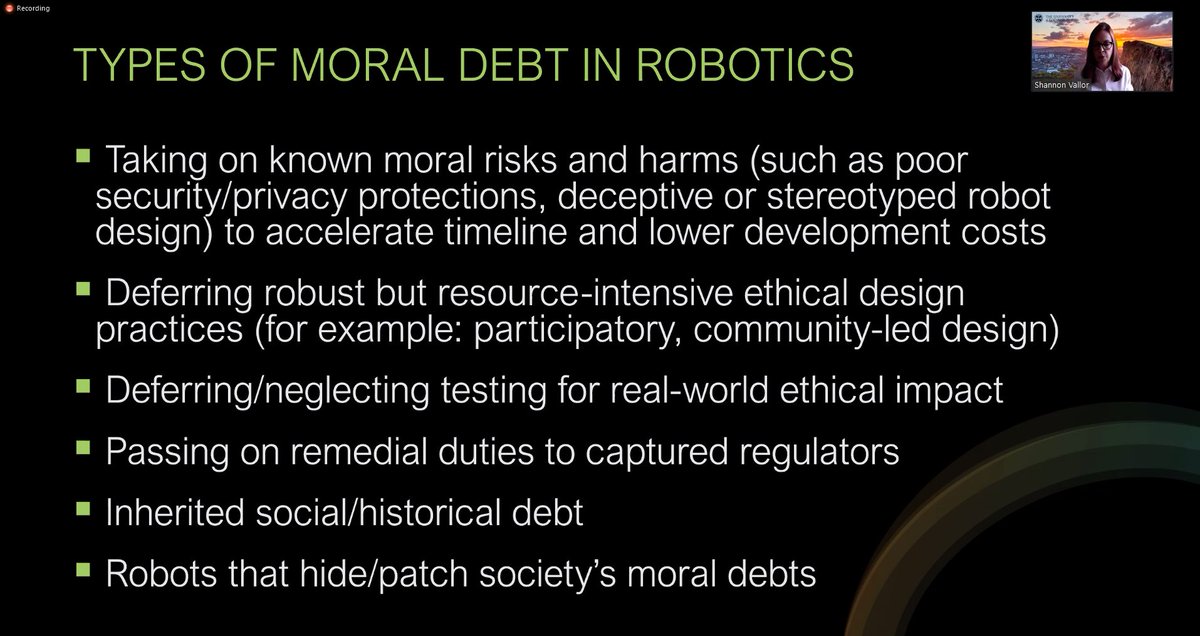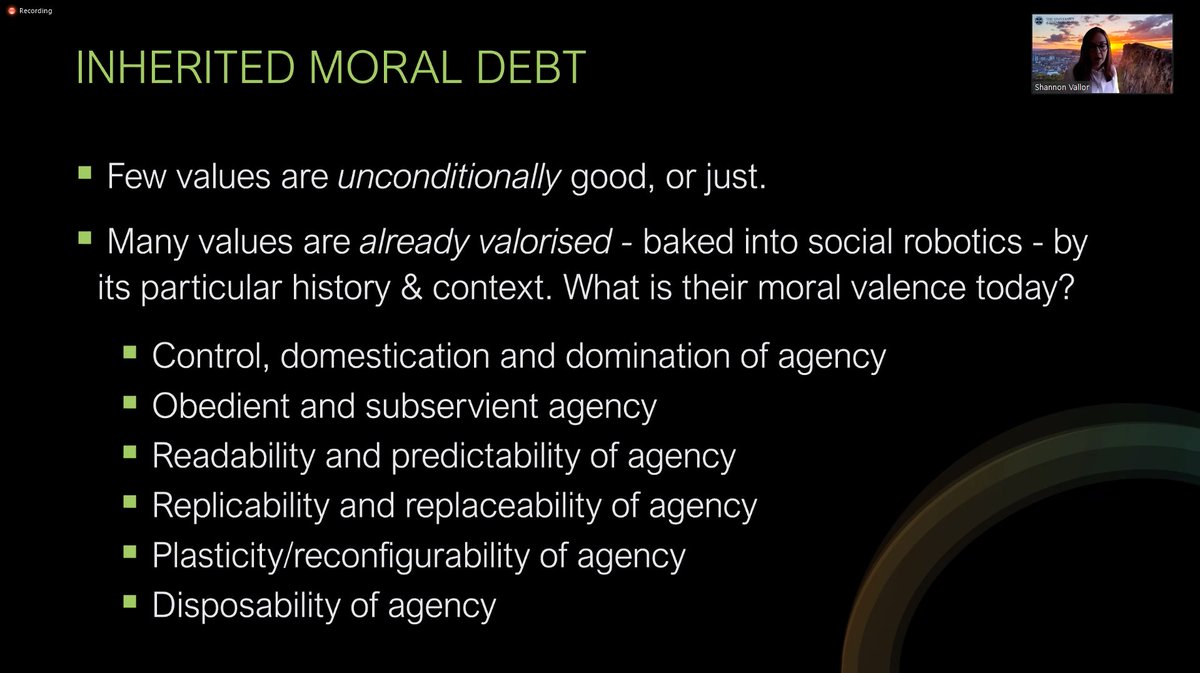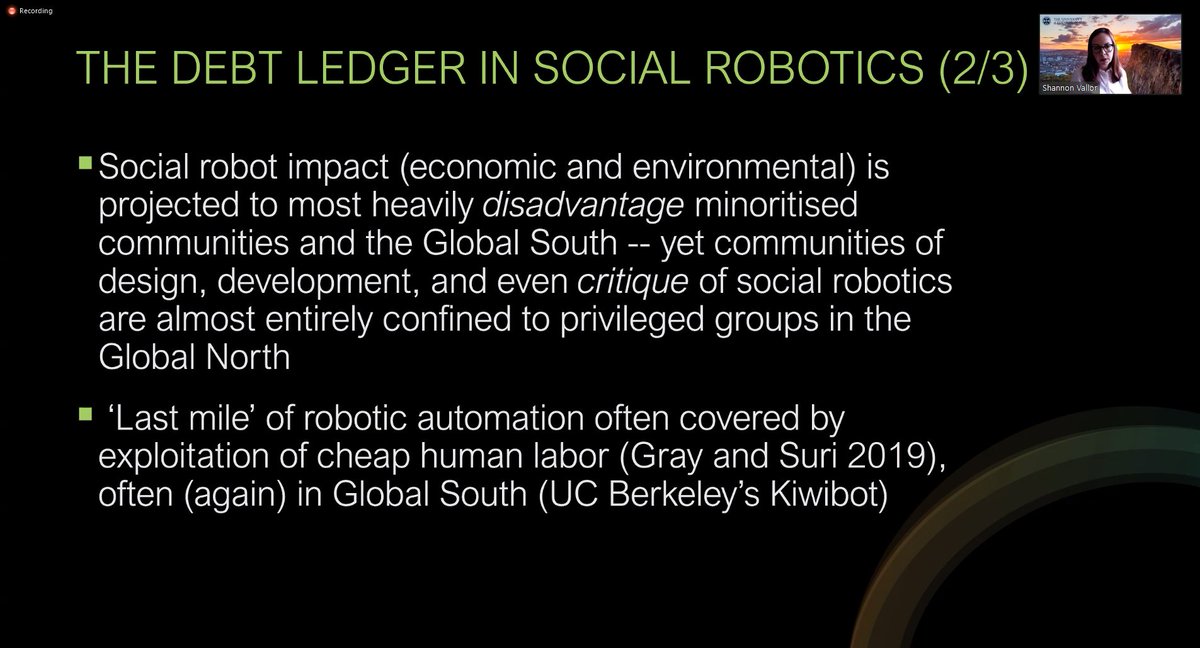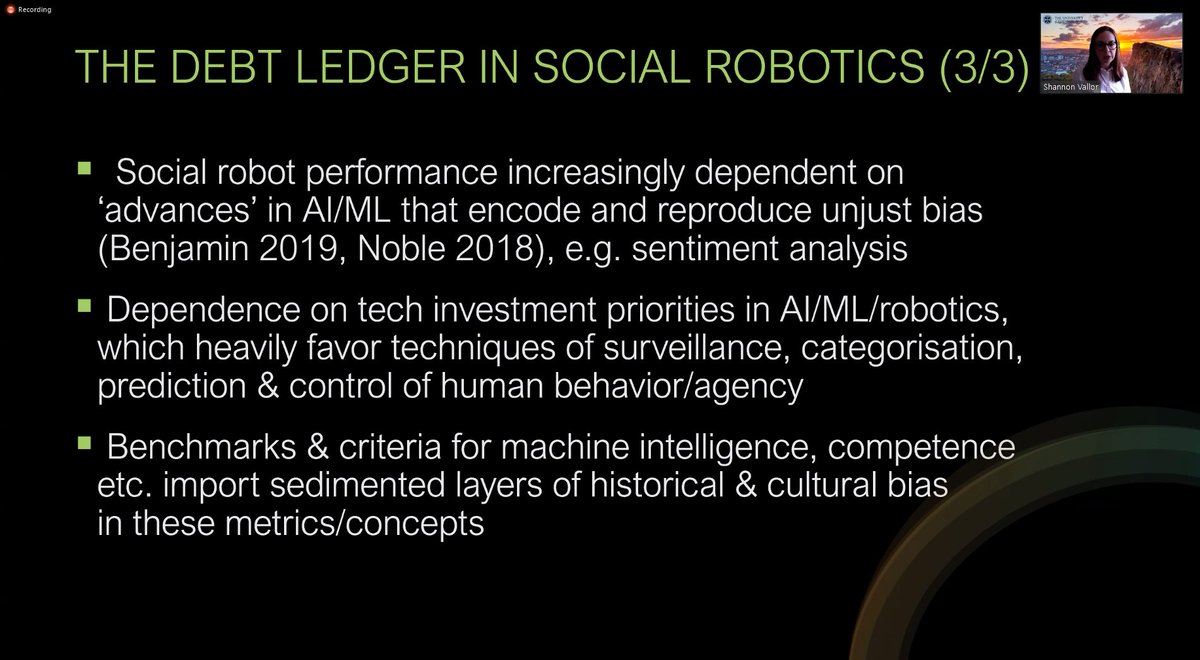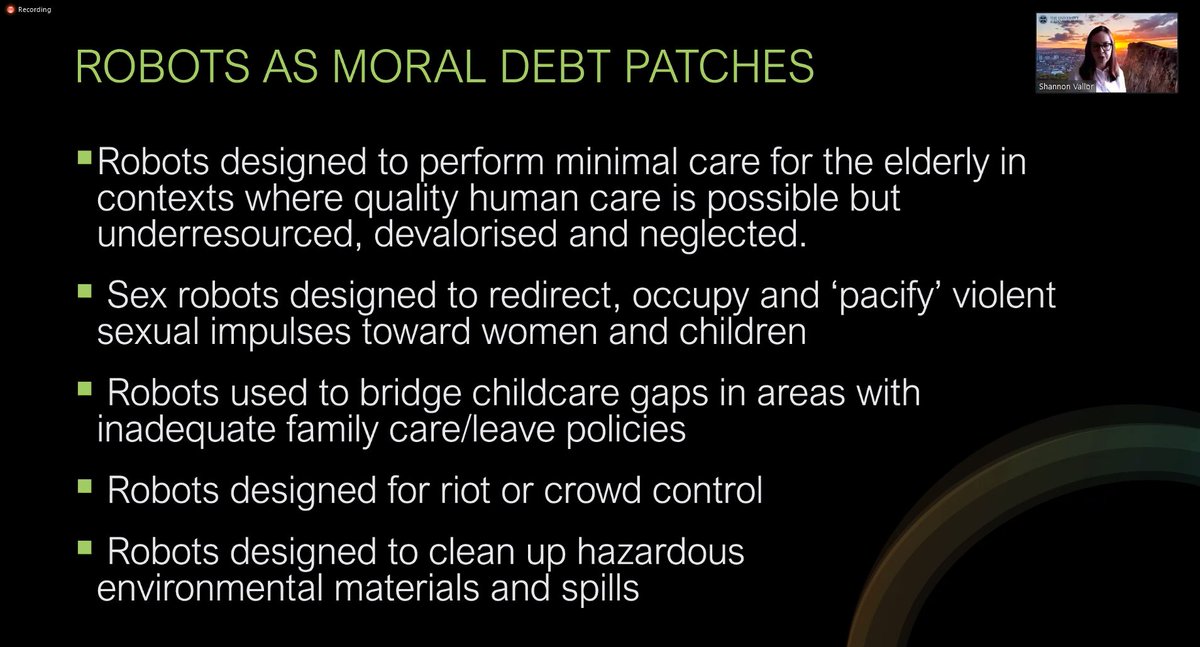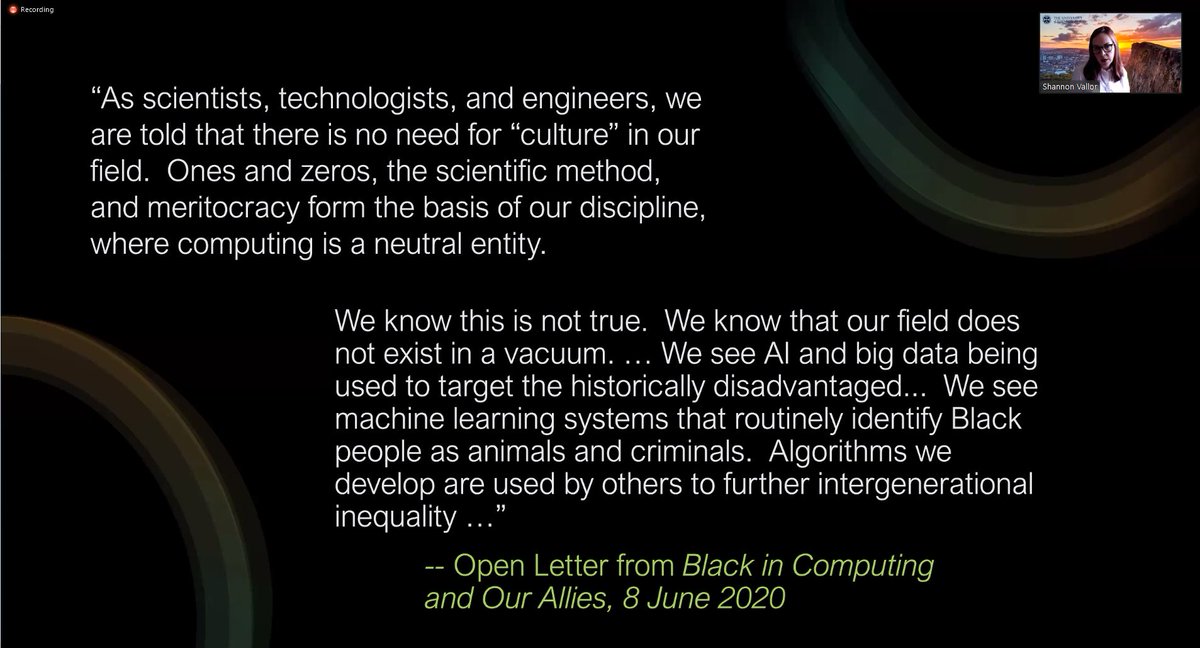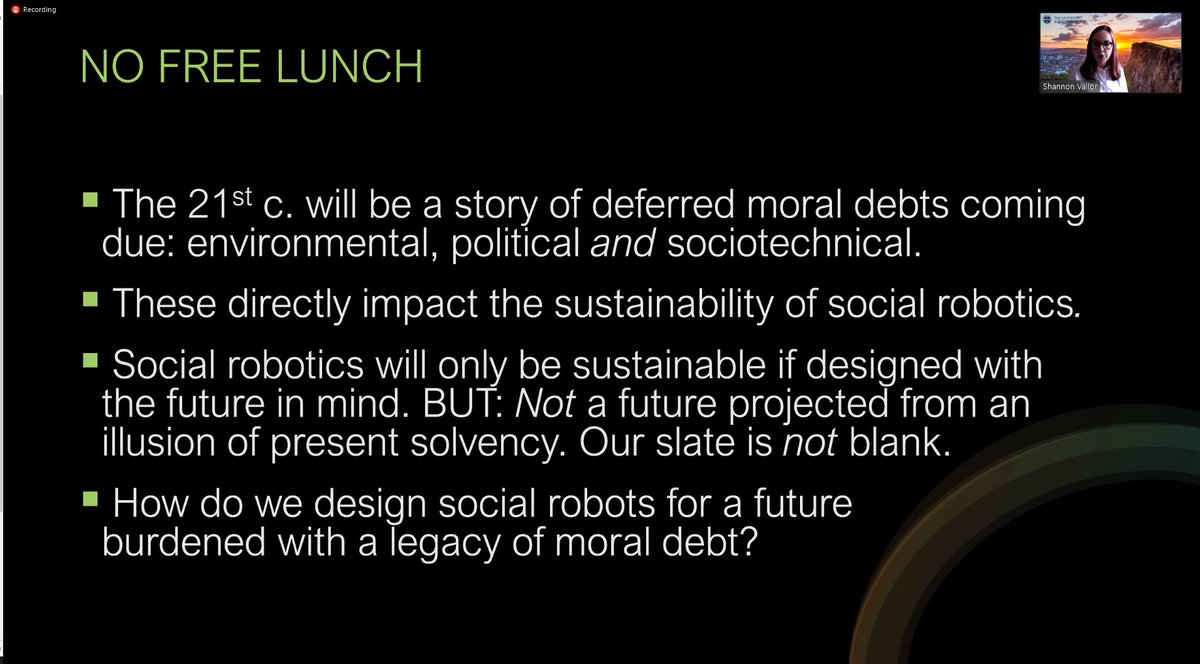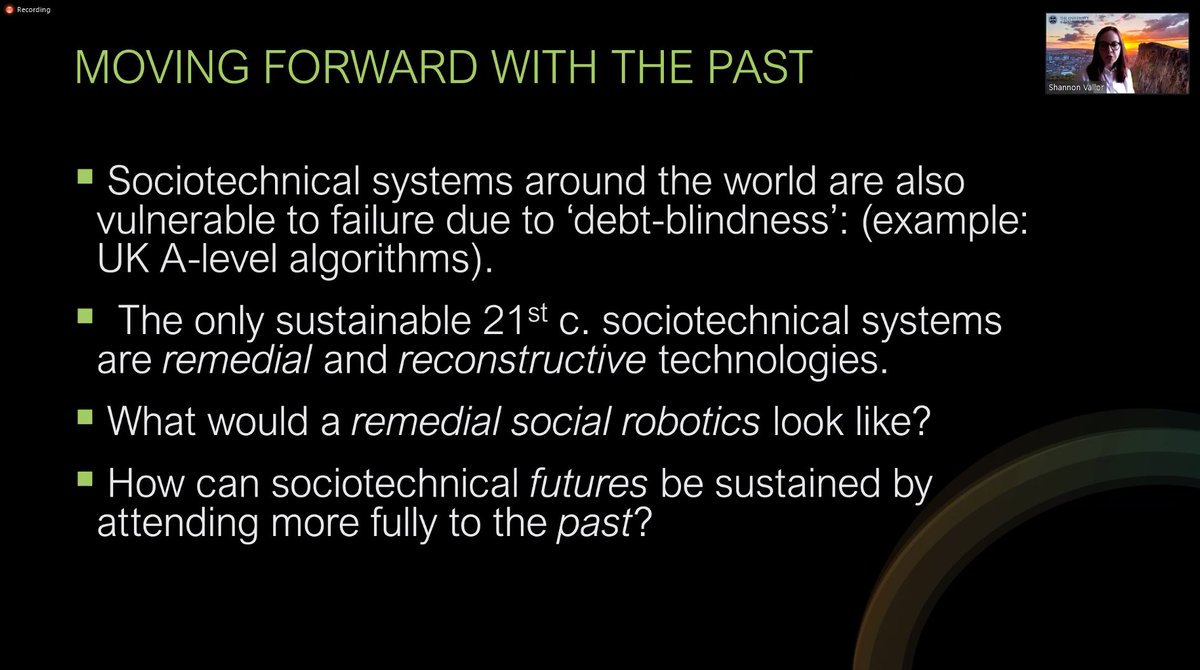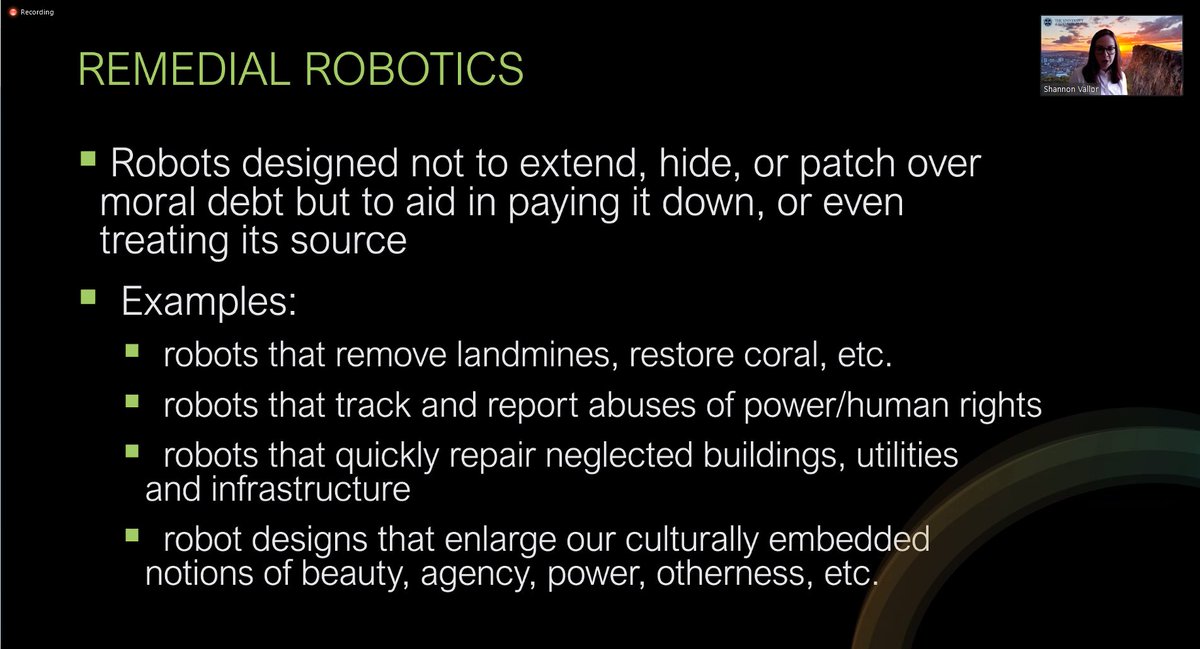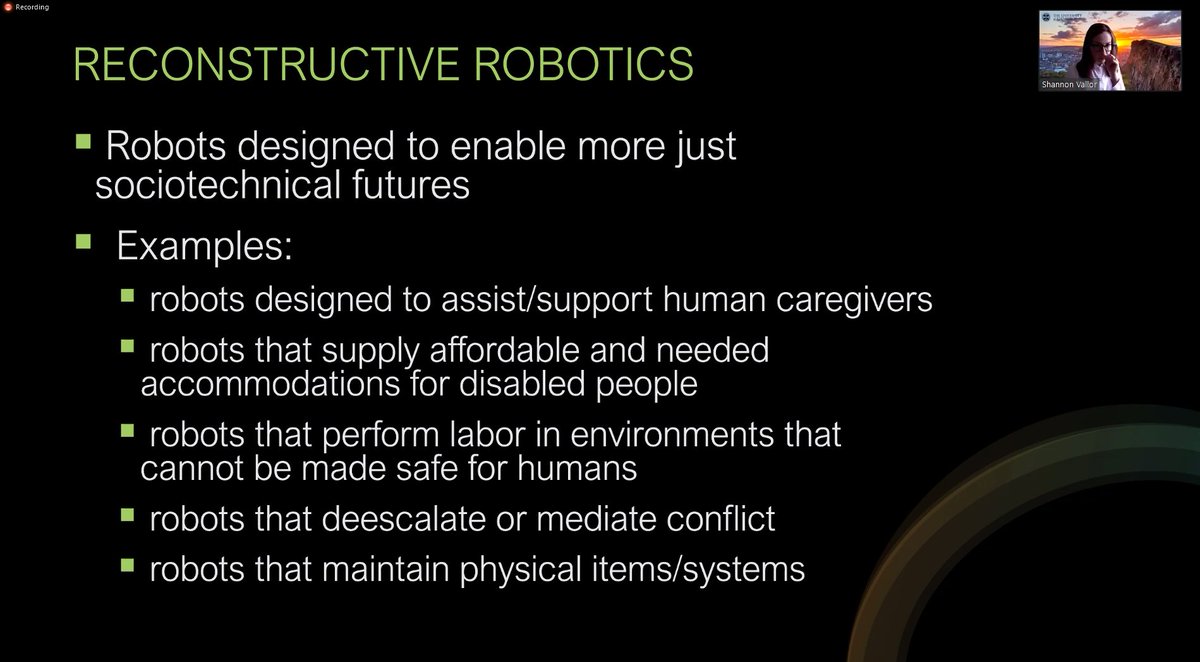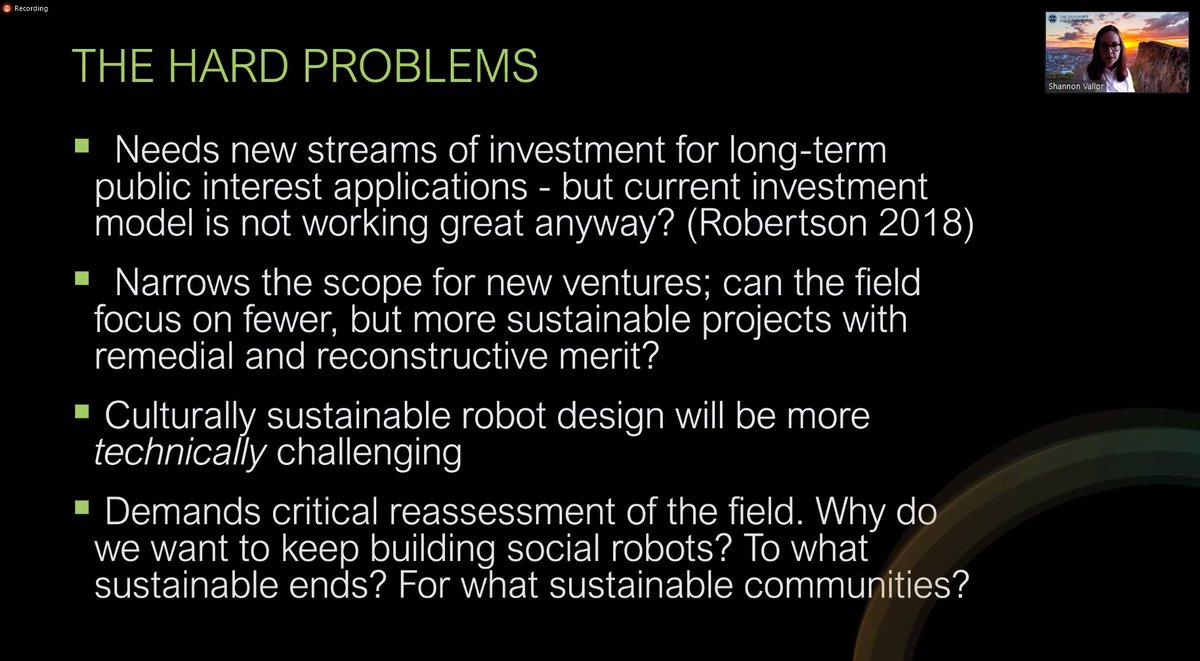Some more light livetweeting of #robophilosophy2020 . Missed the earlier sessions (hope I can find them recorded somewhere!) but caught most of this last one.
The talks motivating these discussions are all pre-recorded online. I like this format a lot. https://conferences.au.dk/robo-philosophy/aarhus2020/pre-recorded-talks/#c92213 https://twitter.com/David_Gunkel/status/1296061983247282181
The talks motivating these discussions are all pre-recorded online. I like this format a lot. https://conferences.au.dk/robo-philosophy/aarhus2020/pre-recorded-talks/#c92213 https://twitter.com/David_Gunkel/status/1296061983247282181
A question I left in chat, following another question on the political and instrumental dimensions of #roboethics #robophilosophy #AIEthics
Lots of discussion about the nature of autonomy and dignity in HCI, less about the systemic conditions in which these interactions occur.
Lots of discussion about the nature of autonomy and dignity in HCI, less about the systemic conditions in which these interactions occur.
I don't think I heard anyone talk about capitalism or corporate tech yesterday or today. Maybe it's because this is a European conference?
Shuhong Li mentioned a move from HCI to HCSI (human-computer-system interaction), and I appreciate the value of the systems-sensitive approach, but they seem to still be talking about specific systems (eg, the health care system).
https://search.proquest.com/openview/37a3c43c0a13a2f1b7333906b2ea5eea/1?pq-origsite=gscholar&cbl=3933395
https://search.proquest.com/openview/37a3c43c0a13a2f1b7333906b2ea5eea/1?pq-origsite=gscholar&cbl=3933395
But this seems to me still insufficient to address systemic conditions (eg, systemic racism and sexism, capitalism) that pervade and transcend any individual system, even large infrastructural systems like health care.
"Pair ethicists with engineers" is not enough.
"Pair ethicists with engineers" is not enough.
I think @AINowInstitute has spoiled me on what tech ethics can be: focused on worker rights, abuses in policing and corporate tech, systemic analyses of supply chains, etc.
Abstract musings on autonomy and dignity seem rather benign in comparison.
Abstract musings on autonomy and dignity seem rather benign in comparison.
This entire panel is on "nudging". John Sullins is trying right now to make a case for "ethical nudging" as not involving deception or a lack of consent.
This whole conversation seems to me fundamentally confused.
This whole conversation seems to me fundamentally confused.
"Nudging" was a trendy popularization of behavioral economics, and it's useful in design theory and for consulting businesses.
It's not a grounding for ethical theory. It's not useful for clarifying issues of consent or responsibility. Please stop this.
It's not a grounding for ethical theory. It's not useful for clarifying issues of consent or responsibility. Please stop this.
Lol Selmer left a long, boring question in chat and now we've spent about 15 minutes just trying to interpret the question. This is the worst.
Excited for the @ShannonVallor plenary up next!
Shannon opens strong with some extremely obscure references to REM.
Her theme is "reckoning with our moral debt", using the history of Reconstruction as an allegory for "reconstructive social robotics".
Her theme is "reckoning with our moral debt", using the history of Reconstruction as an allegory for "reconstructive social robotics".
I am SO. HERE. FOR. THIS.
She criticizes the focus on "low hanging fruit", targeting obvious or easily avoidable harms, and ignored the ways that design already reflects values and structures of power that effect how robots are designed and used.
She includes her own work in this criticism of "shallow" AI ethics. Says it insufficiently appreciates the way these values are not new, but carry on values and structures that were always already there.
Really interesting discussion of the historically-situated discourse around robots, a "compulsion to tell the end of the human story".
Shannon said this slide are the good things the #robophilosophy #aiethics community has accomplished. The compliment before a storm of criticism.
Now she's developing a theory of moral debt in sociotechnical systems, in analogy with "technical debt".
"I have an app for that" as a way of patching over structural problems and contributing to the moral debt.
Inherited moral debt: our preferences for subservient, predictable, plastic, disposable agents.
These amplify forms of injustice.
These amplify forms of injustice.
This is really great.
I do notice Shannon VALLOR putting a lot of emphasis on VALORIZING values. Hmm seems suspicious. @ShannonVallor
Shannon cites the Open Letter from Black In Computing in June.
Full letter here: https://blackincomputing.org/
Full letter here: https://blackincomputing.org/
Drawing (briefly) on the history of reconstruction, Shannon asks us to think about what remedial or reconstructive social robotics would look like. #robophilosophy2020
Sounds like the early plenary with Rob Sparrow discussed race presentation in robots. Sad I missed it, hope to find the recording...
Shannon shuts down Selmers patriarchial question.
She also preempts the criticism that she's rehearsing a captialist/neoloberal perspective with the metaphor of "moral debt" by acknowledging the limitations of the metaphor.
Appeals to "what we owe to others" as a framing of justice.
Appeals to "what we owe to others" as a framing of justice.
Didn't get to my question, archiving it here.
This talk was really fantastic, thank you @ShannonVallor !
This talk was really fantastic, thank you @ShannonVallor !
Looks like a discussion with the artist from what I think is a German stageplay titled "ELIZA-- Uncanny Love"

 Read on Twitter
Read on Twitter